#Korinth
Photo
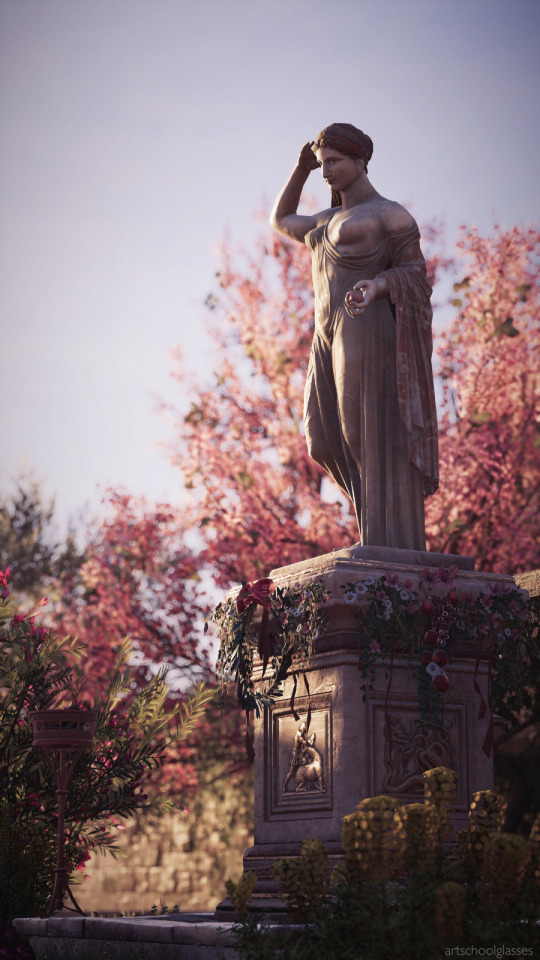
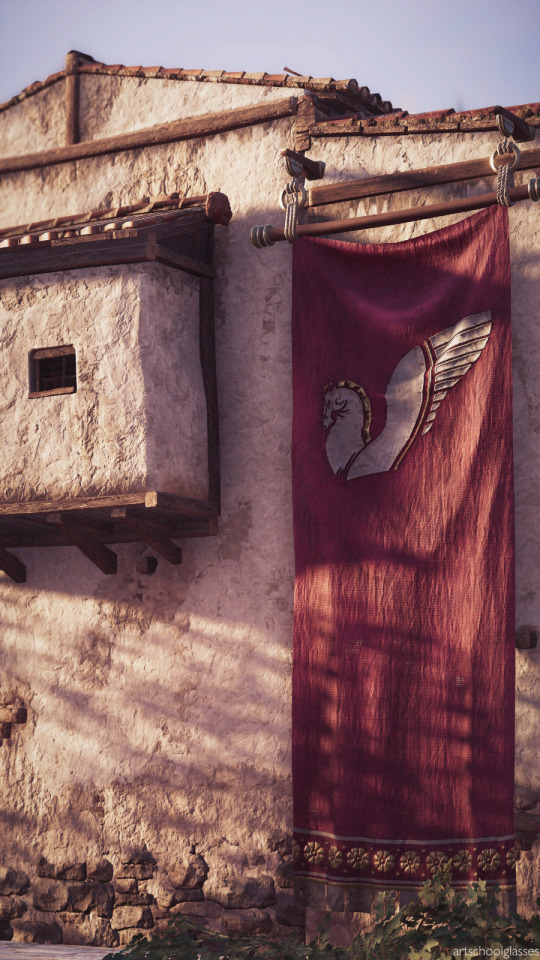

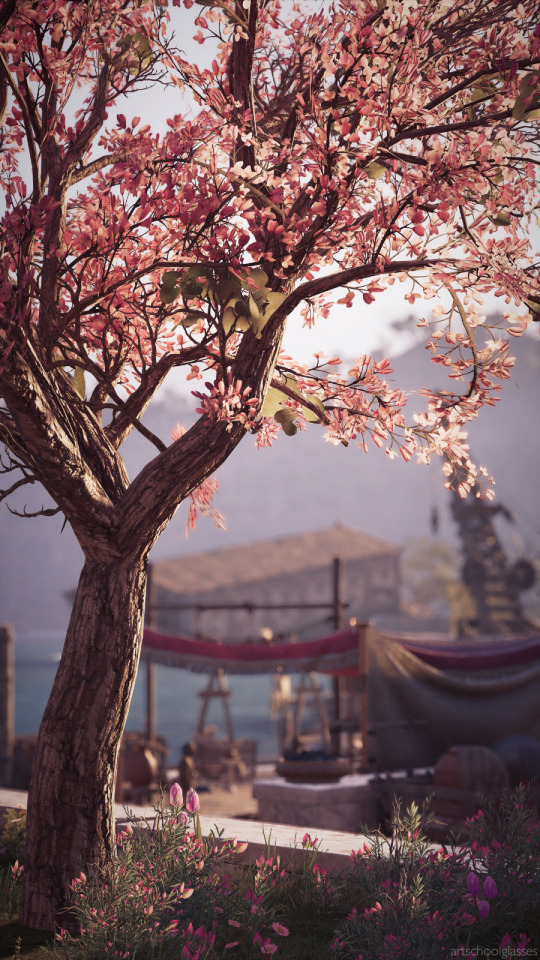
Korinth
Assassin’s Creed Odyssey
#assassin's creed#assassin's creed odyssey#ac odyssey#odyssey#korinth#korinthia#virtual photography#photomode#video game#playstation#ps5#scenery
91 notes
·
View notes
Text

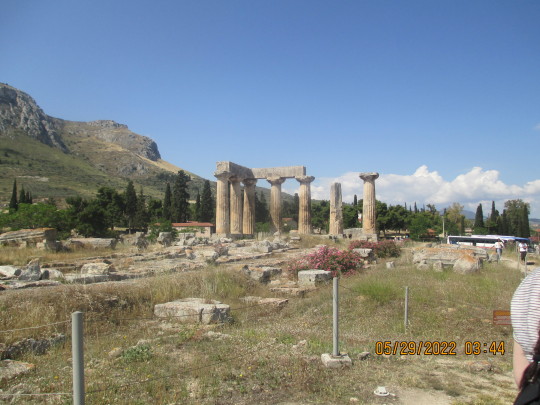
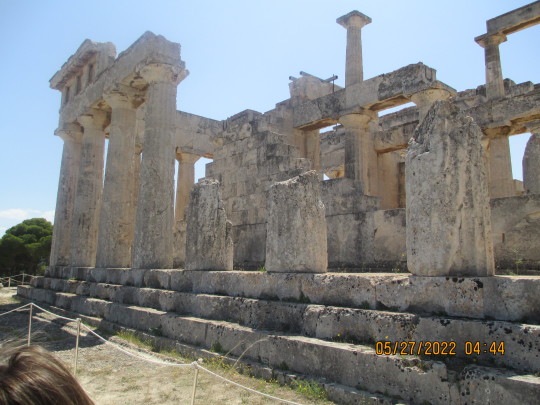

greece, as seen through my digital camera
temple of nemean zeus
ancient korinth
temple of aphaia
parthenon
#greece#ancient greece#classics#nemea#athens#korinth#corinth#aphaia#acropolis#greek mythology#greek temples#greek posts
34 notes
·
View notes
Text

#acodyssey#assassin's creed#assassin's creed odyssey#korinth#korinthia#ubisoft#photomode#gamingedit#virtual photography#gaming photography
7 notes
·
View notes
Text
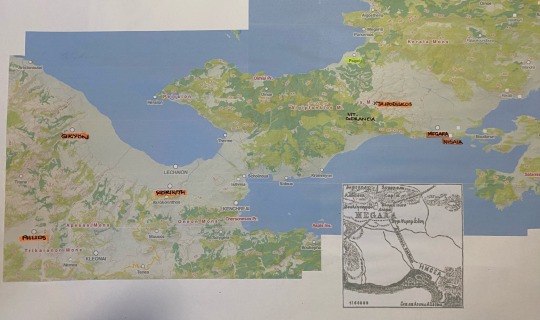
Map related to chapter 16 ‘Secrets’.
3 notes
·
View notes
Photo

Durch die Einbahnstraße von Korinth
0 notes
Photo


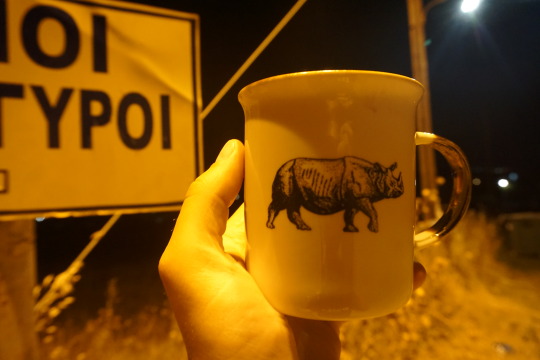

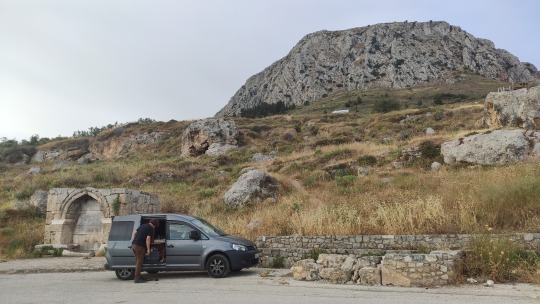


unspektakuläre Übernachtung mit korinthischem Panorama
0 notes
Text

june 1991.
133 notes
·
View notes
Text

Assassin's Creed Odyssey
32 notes
·
View notes
Text
this is about loss
You stare up at the stars that your people will never see ever again.
It wasn’t supposed to be like this.
You are a druid, you are one that wanders the wilds far from the safety of a camp. Protected only by your partners and your skill and your luck.
You are supposed to die first. Not unmourned, but first.
Not be the...last one.
Honedge rattles on your back. Screaming out to remember that you’re not alone here. Not entirely, looking at the stars.
Dragonair nudges his snout against your hand, demanding more rubs. Ghost-like, you obey. Fingers trace gently along the scales.
There are tattoos along that same arm you use. They are patterned after the same scales you trace, a forever reminder of your connection etched into your flesh.
Like the devotion to your god inked into your face.
The same god that man forced to slaughter your entire clan. Dead in their beds, every single one of them. Not a hope, not a prayer.
Its sacred name is warm on your lips. You shouldn’t say it. But there is no one here to hear. Not anymore. The sacredness shall be preserved.
“Yveltal.”
You don’t blame your god for what happened. That would be like blaming a knife for cutting, or a fire for burning, loath as you are to apply such comparisons to your god.
Like it was a tool and nothing more.
Because that is what the king saw it as.
That is what that king used it as. To break laws that should have never been broken. Sucked your people and countless others dry, like a Swoobat with a piece of fruit. In exchange?
The life of a single pokemon.
(We should have burned that Floette’s corpse long before he could lay hands on it-!)
Apparently his brother recants the crime, buries the weapon. Apparently, that man has vanished, full of guilt over his sin.
You know better.
They will claim all the deaths to be only pokemon, as if pokemon’s lives are lesser than those of men. Which they are, to those who tell the stories in those king-holds.
They will erase the deaths of your tribe. They will claim that they never existed.
And there will be no one to say any differently.
(They didn’t even care to free your god, after realizing what had been done. No, that task was left to you, you whose hands still have blood caked under their nails. The last druid of Yvetal, the last member of the Winged Clan.)
You...do not know the proper prayers. Not for your people. Only the prayers for a kill and what gift it provides, and your people...your people are not meat.
Dragonair snorts, removing his head from under your suddenly clenching hand.
“Sorry,” you whisper.
The hardest part is...it’s foolish, really. The dreams and hopes of a pure fool.
The hardest part is no one will look at your tattoos anymore and understand what they mean. Not without explanation.
You are an it/its, and no one will outside your tribe will call you that as is proper. Should you ever point that out, others will wonder loudly why you call yourself a beast.
Fools.
As if the ‘it’ of a pokemon means mere beast. As if the gods were not its, and the closest way to be with them is to also be an it.
You can mouth the prayers, tell the old stories, and no one will know them. Only you. You are alone.
You are the last and that is the hardest part.
You’re not crying, eyes dry. You should be weeping and wailing. Showing your mourning. You do not.
You are a fool.
You are alone.
You are cursed.
You stand up and the stars do not care. You breath out and your people are still dead.
“Well.” Your voice is weak, throat dry. “I guess I should get going.”
Because life, for you, still continues.
And you will not shame your people by not living what you have of it to the fullest.
#my writing#pokemon ficlet#ficlet#oc korinth#set those 3000 years before pokemon x+y#the direct aftermath of AZ's disastrous choice#korinth is wrong about its clan not being remembered btw#they just...villainized in kalos legend#which might even be worse than getting entirely forgotten#death mention
7 notes
·
View notes
Text
German techno sucks my blank mind.
youtube
#ultra records#laura korinth#boris brejcha#nacht#my depressed#my disorders#german techno#tripping techno#minimal techno#Youtube
0 notes
Text
De uitnemendheid van de liefde
De liefde is geduldig,
zij is vriendelijk,
de liefde is niet jaloers,
de liefde pronkt niet,
zij handelt niet ongepast,
zij zoekt niet haar eigen belang,
zij wordt niet verbitterd,
zij denkt geen kwaad,
zij verblijdt zich niet over de ongerechtigheid, maar verheugt zich over de waarheid,
zij bedekt alle dingen,
zij gelooft alle dingen,
zij hoopt alle dingen,
zij verdraagt alle dingen.
De liefde vergaat nooit.
Wat dan profetieën betreft, zij zullen tenietgedaan worden, wat talen betreft, zij zullen ophouden, wat kennis betreft, zij zal tenietgedaan worden.
Want wij kennen ten dele en wij profeteren ten dele, maar wanneer het volmaakte zal gekomen zijn, zal wat ten dele is, tenietgedaan worden.
Nu immers kijken wij door middel van een spiegel in een raadsel, maar dan zullen wij zien van aangezicht tot aangezicht.
Nu ken ik ten dele, maar dan zal ik kennen, zoals ik gekend ben.
En nu blijven geloof, hoop en liefde, deze drie, maar de meeste van deze is de liefde.
0 notes
Note
with faith, all things are possible. – with Anri as a priestess of Aphrodite, perhaps?
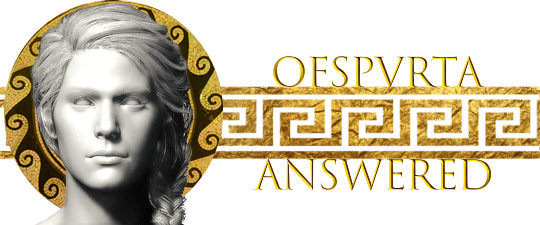
μ::|| meme: the passion (1987) | accepting [ Ξ ]
θ::|| @decidentia | anri

She had come seeking information on her mother's whereabouts, and even though Anthousa had promised to tell her what she knew, Kassandra knew she was going to have to put in quite a bit of effort to get what she wanted. Everything was transactional, nothing was freely given in this world, not even for a daughter looking for her mother. The statue of Aphrodite stood tall above the misthios and the worshippers strewn about, marble face staring down, immaculate in its beauty and yet emotionless. An effigy and little more.

A voice behind her had interrupted her quiet thoughts, one of the priestesses that tended to the temple. One of the few that hadn't been scared off by the Monger's men, no doubt. Kassandra only turned slightly to glance at the fair-haired woman. Even the priestesses were beautiful, though she supposed a goddess such as Aphrodite would expect nothing less.
"Depends on what that faith is in. I put faith in myself and my blade, it gets the job done."
#λ::|| eagle bearer | kassandra#τ::|| anri#τ::|| odyssey#λ::|| greek world | 5th century bce#decidentia#μ::|| there's another goat? | memes#oh yes i am here for this#i am literally heading to korinth on my third playthrough right now so this is perfect.
0 notes
Text
BIZANTYNSE LETTERKUNDE
Binne die filosofiese kring rondom die prinses Anna Comnene is die figure van Eustratios van Nicaca (c. 1050- kort na 1117) en Michael van Efese (11de-12de eeu) prominent. Aan eersgenoemde is ons dank verskuldig vir kommentaar op Boek. I van Aristoteles se Posterior Analytics (nogal in die styl van Johannes Italos) en op Boeke. Land VI van die Nicomachean Etiek (met 'n sterk platoniserende neiging teen Aristoteliese kritiek). Michael, aan die ander kant, toon 'n breër belangstelling in Aristoteliese filosofie. Benewens sy kommentaar op die Organon het hy ook op 'n duidelike en nugter wyse kommentaar gelewer op die Metafisika (Boeke. 6-14), die Nicomachean Etiek (Boeke. 5, 9 en 10), die biologiese en dierkundige geskrifte en, soos die enigste Bisantyn wat dit doen, die Politiek en die verhandeling De coloribus. Sy kommentaar op die Onderwerpe en die Retoriek het egter verlore gegaan. 'n Bietjie later het Gregorius Pardos (c. 1070-1156), Metropolitaan van Korinthe, groot invloed uitgeoefen. Behalwe om kommentaar te lewer op die liturgiese Leerreëls van Cosmas van Jerusalem en Johannes van Damaskus, het hy kommentaar gelewer op die verhandeling Пepi pe- ódov dervórηTog ("Oor die aanleer van vaardigheid in retoriek") van Hermogenes. Onder die produktiewe uitset van Theodorus Prodromos (c. 1100-kort voor 1158) is daar 'n kommentaar van 'n logies-pedagogiese aard op die tweede boek van die Posterior Analytics. Die belangrikste figure van die Comnene-tydperk (1081-1185) is Johannes Tzetzes (d. na 1180) en Eustathius van Thessalonika (d. 1192/4). Eersgenoemde het 'n groot aantal kommentare oor antieke skrywers, veral digters, saamgestel: Hesiod, Pindar, die tragedians, Aristophanes (die sogenaamde Bisantynse triade: Wolke, Paddas, Plutus), Lycophron (ook toegeskryf aan sy broer Isak), die Halieutika van Oppianus en Nicander. Hy het ook vyftienlettergrepige verse opgedra aan die Corpus Hermogeniamum (slegs gedeeltelik gepubliseer) en 1700 twaalflettergrepige parafraseringsgedigte aan die Eisagoge van Porphyrius. Ten slotte het hy 'n allegorese gekomponeer van die Ilias en die Odyssee in 9741 reëls. Eustathius se ensiklopediese kennis word vertoon in sy uitgebreide Homeriese kommentare wat as handtekeninge oorleef het. Hy is ook die skrywer van 'n verklarende parafrase en kommentaar op 'n geografiese didaktiese gedig van Dionysius Periegetes en 'n kommentaar op Pindar, waarvan slegs die proem oorleef het. Tot die Comnene-tydperk behoort ook die twee kanoniste Alexius Aristenos en Theodorus Balsamon, skrywers van 'n gewilde kommentaar op die Nomocanon XIV titulorum,
Na die kulturele en politieke onderbreking van die Latynse oorheersing van 1204-1261, 'n tydperk waarin daar nietemin Michael Senacherim se tot dusver slegs gedeeltelik gepubliseerde kommentaar op Homeros en waarskynlik ook Leon Margentinos se kommentaar op die Organon, die tydperk van die paleoloë, verskyn het. (1259-1453) het 'n verrassende kulturele herlewing aanskou. MSS van klassieke skrywers is weer in merkwaardige hoeveelhede gekopieer. Vier toringfigure behoort tot die eerste fase van hierdie era: 1. Manuel/Maximos Planudes (1255-1305), 'n vertaler van Latynse skrywers in Grieks en filoloog, maar ook 'n
1010
redakteur en kommentator oor antieke tekste. Sy ryk werk sluit uitgawes van Aesopus en die eerste twee boeke van Diophantus se Arithmetic in, albei met kommentare. Hy het ook skolia oor Hesiod (Erga), Sophokles, Euripides, Aristophanes, Thucydides en Euclides geskryf, en epimerismes oor die eerste boek van Philostratus se Eikones. 2. Met betrekking tot Manuel Moschopulos (c.1265-c.1316) kan ons, alhoewel met 'n bietjie moeite, die skolia van 'n oorwegend parafraserende en grammatikale aard op Hesiod, Pindar (Olimpiese Epinicia), Sophocles en Euripides (in elke geval die Bisantynse) rekonstrueer triade"), Theocritus (die eerste agt gedigte), Aristophanes (Plutus), asook 'Technologies' (grammatiese inleidings) tot die Ilias en tot Philostratus. 3. Thomas Magistros (oorlede kort na 1346), komponis van 'n invloedryke Attisistiese leksikon, was 'n redakteur van en kommentator oor die tragedians, Aristophanes (drie komedies), Pindar (parafraseer van scholia wat oorwegend grammatikaal en stilisties van aard is) en die briewe van Synesius. Demetrius Triklinios (c.1280-c. 1340) was ongetwyfeld die belangrikste filoloog en tekskritikus van sy tyd. Verdien spesiale vermelding van sy produktiewe uitset is die uitgawes en kommentare (met talle uittreksels uit die scholia vetera) oor Hesiod, Pindar (veral scholia op meter), Aeschylus (vyf tragedies), Sofokles (veral die eerste vier tragedies), Euripides (handtekening), Aristophanes (die drieklank, 'n handtekening), Theocritus en Aratus, waarvoor hy ook materiaal van Planudes gebruik het.
Langs hierdie geleerdes het ander figure prominensie verwerf, soos die historikus Georgius Pachymeres (1242-c. 1310), wat 'n eksegetiese parafrase van byna die hele Aristoteliese korpus (bestaan in twee handtekeninge), die monnik Sophonias (d. voor 1351) saamgestel het. , komponis van ten minste een parafrase van die Aristoteliese geskrifte De anima en Sophistici Elenchi. Ook aktief was die Chartophylax en Megas sakellarios (Direkteur van Argief en Finansiële Administrateur) Johannes Pediasimos (c. 1240-1310/1314), wie se allegoriese parafrase van die Ilias 1-4, scholia oor die Prior Analytics en deel van die Posterior Analytics ( sy hoofbron was Johannes Philoponos), oor Hesiod (Theogonie en Aspis), Theocritus (Sirinx) en Cleomedes het oorleef. Die politikus Theodorus Metochites (1270-1332) het parafraserende kommentare oor 'n groot deel van Aristoteles se geskrifte geskryf (uitgesluit die Organon en die Metafisika). Georgius Lakapenos (13de-14de sent.) het 'n skoolkommentaar oor Epictetus geskryf. Ten slotte moet 'n mens die numerologiese interpretasie noem van 'n Johannes Protospatharios (13de-14de sent.), wat ons nie meer presies kan identifiseer nie, oor die Werke en Dae (Hemerai) van Hesiod, en die allegorieë oor die Teogonie van Diakonos Johannes Galenos, wie se oordraggeskiedenis verbind hom nou met Protospatharios. Tot die 14de eeu. behoort die groot polihistorikus Nicephorus Gregoras (c. 1293-c. 1359/1361), wat onder andere die skrywer was van 'n kommentaar op Synesius se verhandeling Пlegi Evulviov ('Oor drome') en ook (twyfelagtig) toegeskryf het aan hom laerskool-
#BIZANTYNSE LETTERKUNDE#afrikaans#south africa#BIZANTYNSE#Eustratios#Nicomachean#Aristoteliese kritiek#Korinthe#Johannes van Damaskus
0 notes
Text


#acodyssey#assassin's creed#assassin's creed odyssey#korinthia#korinth#ubisoft#photomode#gamingedit#virtual photography#gaming photography
6 notes
·
View notes
Photo

Sandman - Albtraumland #1: Der Lächelnde Mann ist eine Geschichte von James Tynion IV, mit Zeichnungen, u.a. von Lisandro Estherren. Mit SANDMAN hat Neil Gaiman eines der revolutionärsten und besten Comics der Moderne erschaffen. Jetzt präsentiert James Tynion IV eine neue Geschichte, die aus dem Reich der Träume entsprungen ist, mit einer der verstörendsten Figuren, der damaligen Serie, dem Alptraum und Serienkiller: Der Korinther!
#Alptraum#Angst#Black Label#DC Comics#James Tynion IV.#Korinther#Liebe#Lisandro Estherren#Mächte#Panini Comics#Sandman#Comics
1 note
·
View note
